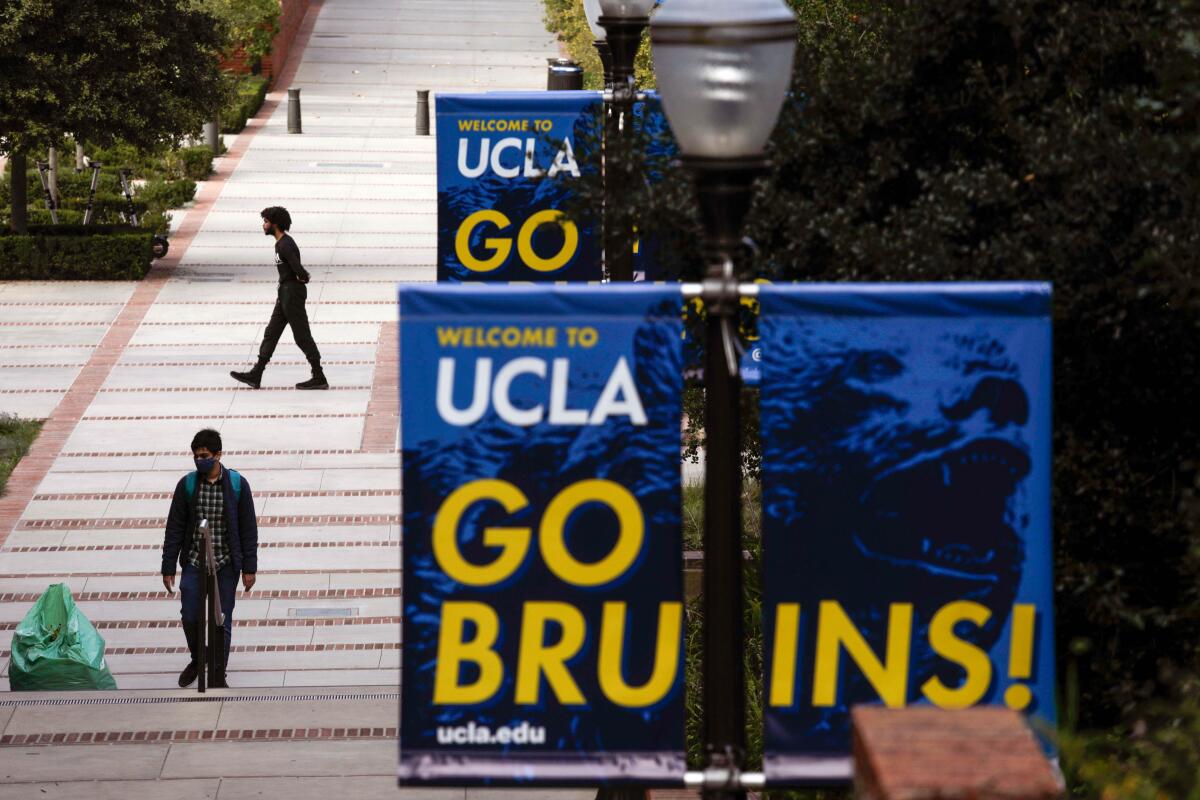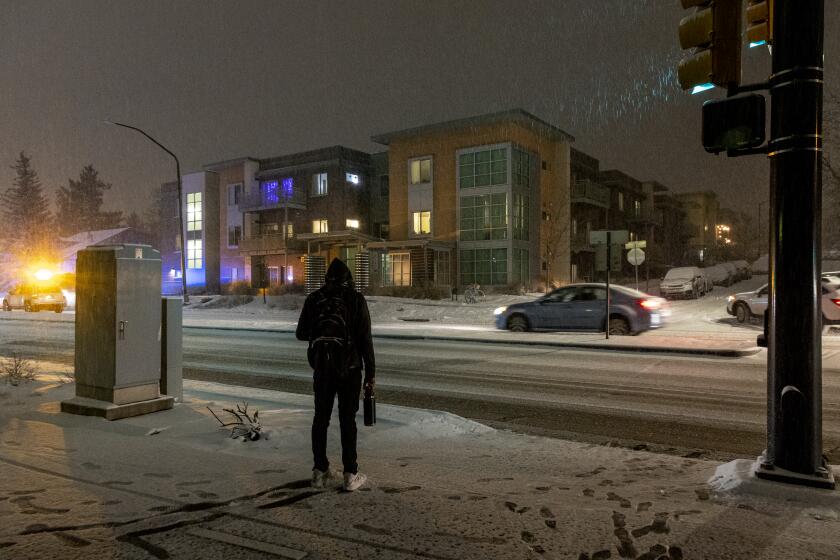UCLA to review threat protocols after criticism over last week’s response

- Share via
A week after UCLA’s response to suspected threats of mass violence by a former lecturer was criticized by some students as slow and inadequate, officials announced Monday that a task force will review the university’s threat response protocols.
Chancellor Gene Block said in a news release that the university is committed to protecting the campus community, improving its response to potential threats and “taking the opportunity to reflect on what worked well and what could be improved.”
“To that end, I am calling for the creation of a task force, including student representatives, to conduct a comprehensive review of our current protocols for responding to potential threats and other incidents on campus,” Block said.
Matthew Harris, 31, was arrested Tuesday morning by police in Boulder, Colo., and charged by federal prosecutors with making criminal threats across state lines.
Matthew Harris’ neighbors in Boulder, like UCLA students, criticized authorities for not informing them more promptly of the threat he may have posed.
His alleged threats began Jan. 30, when he sent an email with racist slurs to his former students. On Jan. 31, philosophy department Chair Sherrilyn Roush alerted members of the department that campus police and behavioral specialists were “investigating with urgency” threats directed at UCLA, which included a video titled “UCLA Philosophy Mass Shooting” and “an 800-page manifesto with specific threats toward some members of the department.”
That night, many philosophy students had been told their classes would be held remotely, but the first campuswide alert was not sent until 9:25 p.m., when UCLA said that university police were aware of the “concerning email and posting” and that authorities were engaged with out-of-state law enforcement.
It was not until 11:57 p.m. that officials moved online all in-person classes for the next day — a move that came far too late for many students who said they felt “strung along” and frustrated by a lack of information from campus officials.
According to Block’s announcement on Monday, the task force will examine:
- How information about potential threats is received on the campus.
- How threats are evaluated by university police and which UCLA administrative units they collaborate with.
- How and when cross-campus leadership and key administrative and academic units are made aware of potential threats.
- How determinations are made about how and when to notify the broader community.
- And the effectiveness of UCLA’s emergency notification processes to the community, including the BruinAlert system.
The task force will be chaired by Stephen Yeazell, a professor emeritus of law, and will be “charged with recommending specific steps for improvement.”
Former lecturer Matthew Harris was found in Colorado after making threats, authorities said. His motives, and UCLA’s response, are not yet clear.
A report will be shared publicly once finalized, according to the announcement.
Before last week, Harris had gained a reputation for odd and erratic behavior while he was in a postdoctoral fellowship with the UCLA philosophy department.
Eventually, a student said she reported Harris to campus authorities and the FBI after he directed another student to his YouTube channel, which included disturbing references to sexual perversion and bomb threats at Los Angeles International Airport.
UCLA removed him from his post last spring and the University of California got a restraining order against him after he emailed his mother saying that he planned to hunt down and kill a UC Irvine professor.
More to Read
Sign up for Essential California
The most important California stories and recommendations in your inbox every morning.
You may occasionally receive promotional content from the Los Angeles Times.















